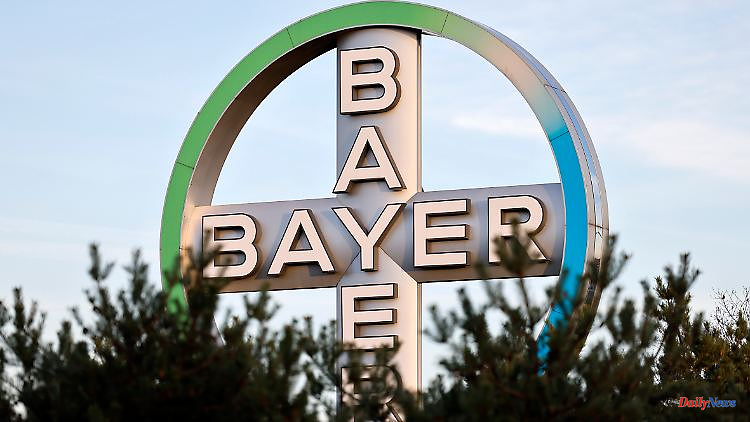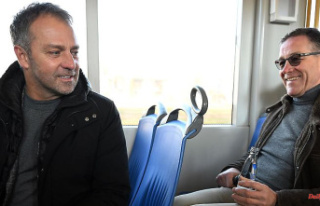As a farewell, Bayer boss Baumann can once again report good figures. The shareholders should receive a significantly higher dividend. But this facade can hardly hide the problems: The glyphosate complex continues to cost billions. And the new boss has to deal with the issue of the breakup.
Bayer's long-time CEO Werner Baumann resigns with plenty of construction sites. He leaves his successor with meager business prospects and the discussion about splitting up the pharmaceutical and agricultural group. On top of that, there is still no end in sight to the long-standing legal dispute over the weed killer glyphosate, and the share price continues to bobble. But the 60-year-old is satisfied: "I am handing over a strategically very well positioned company to my successor Bill Anderson on June 1, 2023," he explained. The group stands on an "extremely strong and robust foundation" and is active in the right areas.
Now it's up to Anderson - most recently pharmaceutical boss at Roche - to restore the trust of the shareholders, which Baumann gambled away with the multi-billion takeover of Monsanto. The board did not want to comment on the demands of investors for a split of Bayer or a separation from the business with over-the-counter health products. "Bill will certainly be happy to answer questions like these as soon as he is on board," pointed out Baumann to his successor.
According to Markus Manns, fund manager at Union Investment, restoring investor confidence and reviewing the group structure are Anderson's most important tasks. "Satisfied shareholders are the best weapon to defend against a break-up," said Manns. "Baumann is handing over a company in need of rehabilitation, where the damage caused by the 'Hurricane Glyphosate' has been repaired as best as possible and the first repair work on the building fabric has begun."
This year, the legacy of the Monsanto takeover, with which Bayer had traded the wave of glyphosate lawsuits in the United States, will again weigh on the balance sheet: the outlook includes expected settlement payments of two billion to three billion euros, especially for the legal complex Glyphosate. 1.3 billion of that flowed in January for settlements in connection with the chemical PCB, which was once manufactured by Monsanto. At the end of December, the provision for the settlement of existing and future glyphosate lawsuits still amounted to 6.4 billion dollars (around six billion euros) - most recently, agreements were still outstanding for 45,000 of the 154,000 current lawsuits. Bayer has already paid around $9.5 billion.
In day-to-day business this year, lower prices for glyphosate as well as for some established drugs such as the blockbuster Xarelto will have a noticeable impact. In 2022, Bayer still benefited from significantly higher prices and a 44 percent jump in sales in the herbicide business after the competition experienced production bottlenecks as a result of Hurricane Ida.
Inflation is also a headwind. After two years of significant growth in the upper single-digit percentage range, Bayer therefore only expects currency-adjusted sales growth of two to three percent to EUR 51 billion to EUR 52 billion in 2023, with adjusted operating profit (Ebitda) likely to fall to EUR 12.5 billion to 13 billion. In 2022, adjusted earnings had risen by more than a fifth to 13.5 billion euros, also thanks to positive currency effects.
At Bayer, all three areas improved, but the group posted the most significant increases in the agricultural business. While business with over-the-counter health products went well for the year as a whole, Bayer only increased slightly in the pharmaceuticals sector - mainly due to a significant drop in sales of the anticoagulant Xarelto, which is suffering from price pressure and the first patent expirations.
Overall sales rose by a good 15 percent to 50.7 billion euros, currency-adjusted there was an increase of 8.7 percent. The bottom line is that the group made a profit of almost 4.2 (previous year: 1.0) billion euros. The shareholders should therefore receive a 40 cent higher dividend of EUR 2.40 per share. Investors could not reconcile that on Tuesday: Bayer shares were the biggest loser in the leading index Dax with a minus of more than four percent.
At a good 57 billion euros, the group is worth significantly less on the stock exchange than it once spent on the 63 billion dollar Monsanto takeover. Baumann is not satisfied either: "Our market value is far below the actual value of the company and we will continue to work hard to close this gap."












